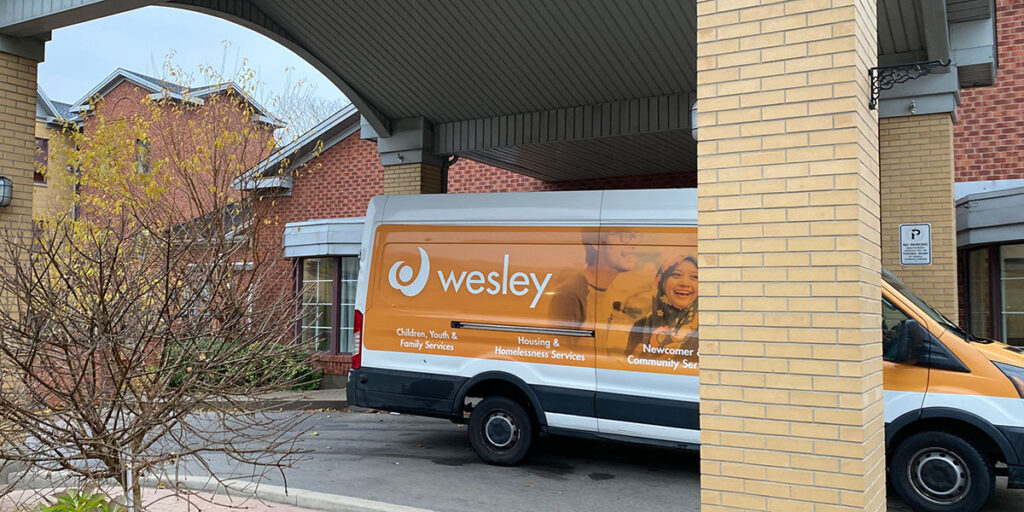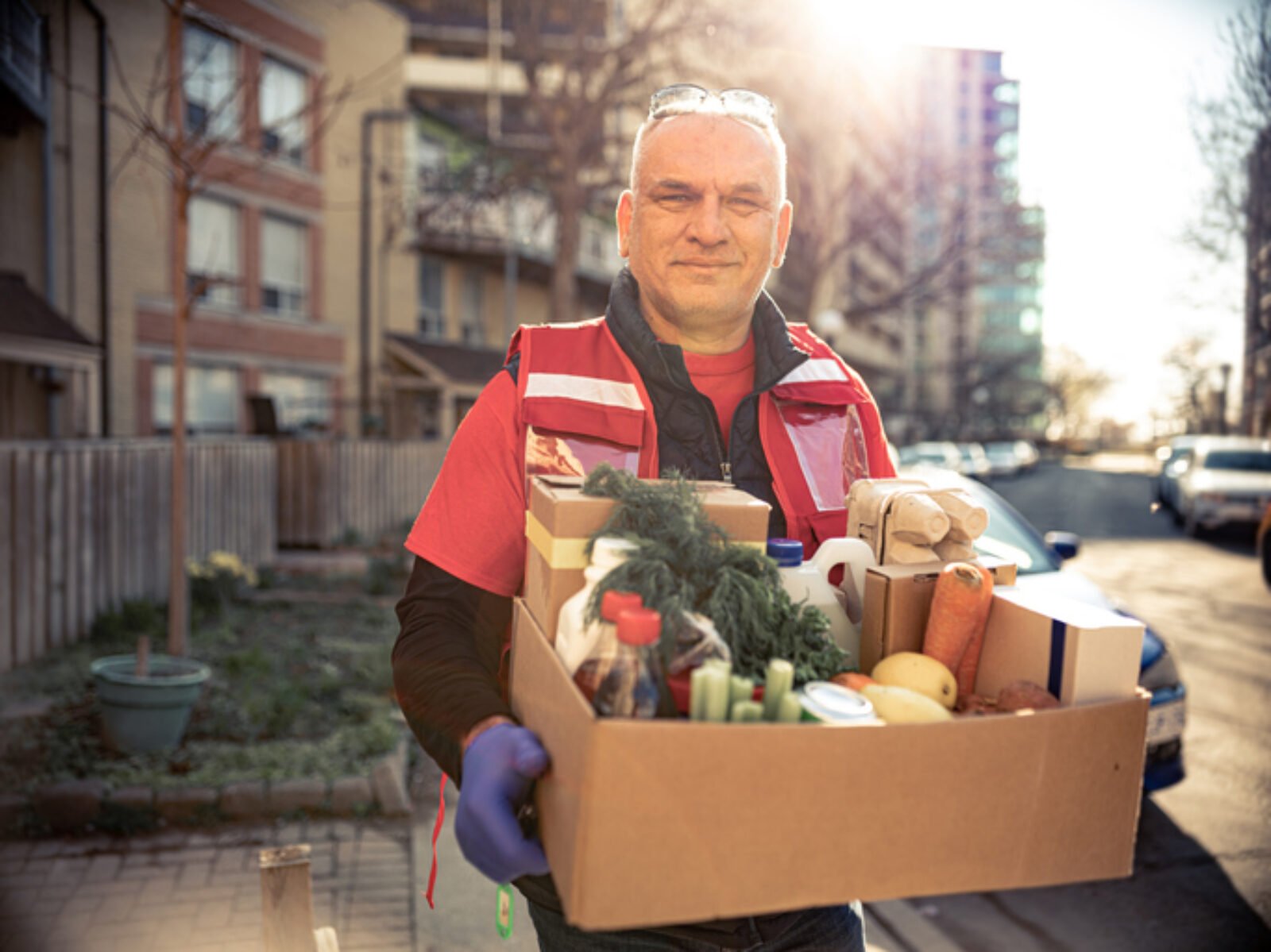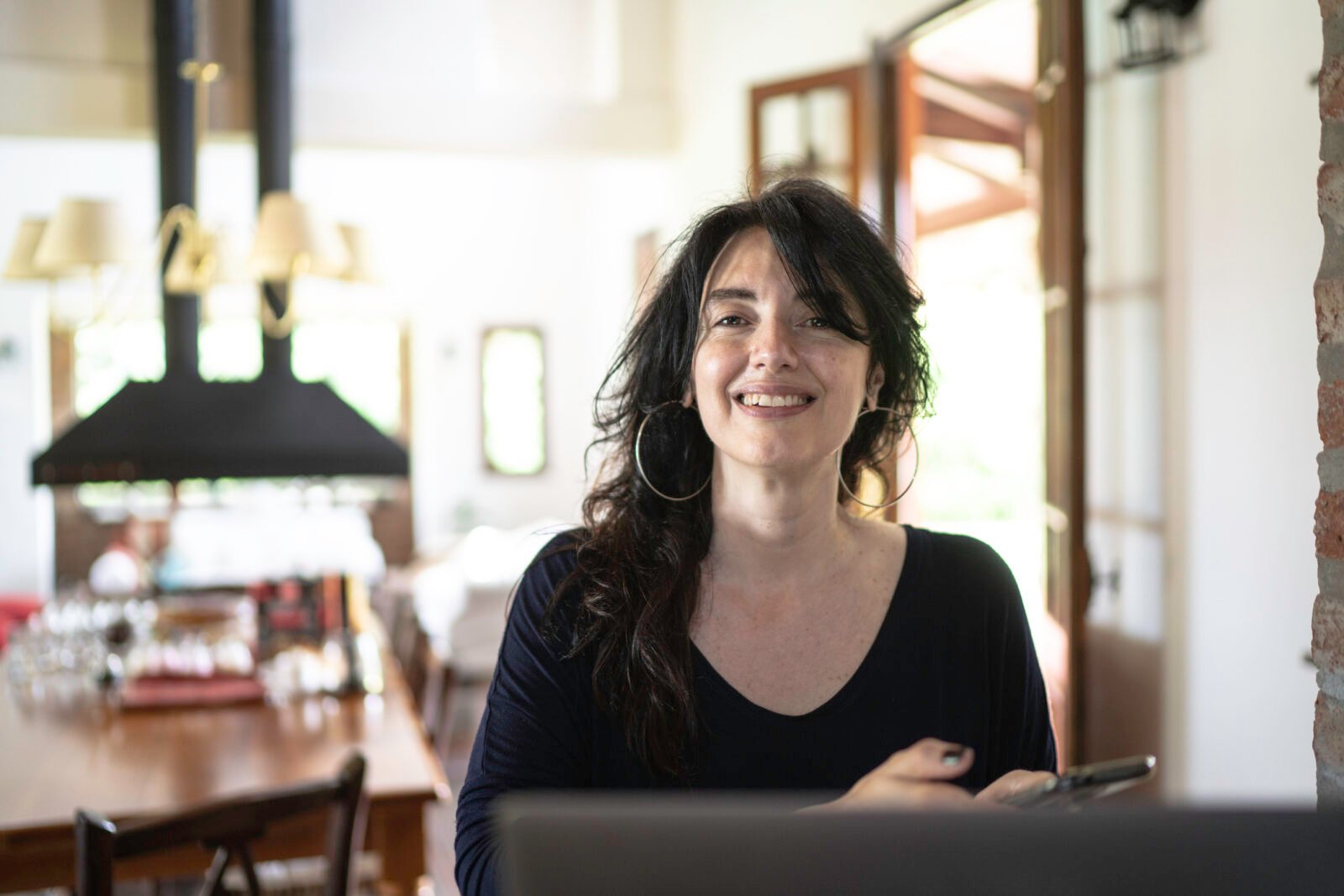Your life is already full of moments that matter, ones where you’ve shown up and left your mark. But what if you could make a difference that lasts longer? What if you could create something meaningful that lives on, even after you’re gone? That’s where charitable gifts in Wills come in.
This isn’t about chasing clout or likes. It’s about real influence. Imagine your name tied to fighting climate change, supporting local artists or funding life-changing research. You’re not just reacting to the world, you’re shaping it in ways that matter.
You don’t have to be a philanthropist with millions to make this happen. Everyday Canadians are quietly making profound differences in the world by setting aside a small percentage in their Will for charity.
In this practical guide, we’ll:
✅Discuss how charities use Will donations
✅Answer questions about how to choose a charity for your Will
✅Show you how to work with a charity to make sure your gift makes the biggest impact possible
Donating to a charity in your Will is not like a regular donation
Leaving a gift in your Will isn’t like giving at the grocery store or donating to a fundraiser (though these are fantastic ways to support your cause). It’s a deeper kind of giving, one that reflects your values and the kind of future you’d like to create. But it does raise a fair question: Will I ever get to see the impact of my gift?.
Many love seeing how their generosity makes a difference first hand, and that’s totally okay. But leaving a gift in a Will isn’t about today’s problems; it’s about tomorrow’s well-being. Think of it as a long-term investment in the vision and mission of your charity – the kind that helps launch big, bold projects and grow core services in smart, strategic directions.
A great example of this is comes from The Land Conservancy (TLC) of BC, a charity that protects areas of ecological importance. In 2022 they learned that loyal donor Joan Alston Stewart had left TLC her home in Blenkinsop Valley, an area just outside of Victoria, BC. That’s eight acres of wetland, Garry oak and Douglas fir habitat that is now under TLC’s care and safeguarded for years to come…all thanks to Joan.

“Joan met with the TLC staff and board to discuss her wish to see the land than she and her husband Gordon called home, permanently protected for birds and wildlife.”
~ Diana Stenberg, Executive Director, TLC BC
And consider this: donating in your Will can be so much more rewarding because you could end up making a substantial contribution without affecting the money you or your family need.
Take Katrina Florendo, psychology grad and mom of two, who was able to complete her degree at the University of Toronto (UoT) thanks to bursaries set up by donors. Witnessing firsthand the impact these gifts can make, she decided to designate UoT as a beneficiary of her life insurance policy. A small gesture that will result in a significant gift, one that will fund a bursary for future generations of deserving students.
These are not stories of the wealthy elite. Joan and Katrina are people like you and me who just found strategic ways to make an impact. And while you may never see witness that impact in person, you can go through life pretty proud of the difference “future you” will make.
P.S. Charities often invite donors who have made gifts in Wills behind the scenes to get a glimpse of the work their gift could support. More on this later.
How charities use donations left in a Will
Another question people often ask: How will the charity I choose use the donation I leave behind in my Will?
Well, it all depends on what conversations you have with them. Charities often recommend that your gift be unrestricted instead of tied to something really specific. If you want to support a cause, the best way to do so is by leaving your gift open to support highest priority needs. Because here’s the thing about the future: it’s full of surprises.
Take the early days of COVID-19. Who could have predicted the global upheaval and the unique circumstances that followed during those years? Charities were on the front lines, helping the most vulnerable stay healthy, housed, and fed. Organizations like homeless shelters had to move individuals into private bedrooms, and serve meals one-by-one in order to keep everyone safe. How did they make it work? With unrestricted funds…much of which came from past donations people had left in their Wills.
These kind of donations are a lifeline for places like Wesley, a charity that supports people struggling with poverty in Hamilton, Halton and Brantford Ontario. It is also now one of the largest refugee serving organizations in their region. Estate gifts provide flexibility to address urgent needs arising from global conflict – such as when Wesley helped thousands of Ukrainian families flee war.

A bequest might even fund the down payment for the organization to purchase property to develop housing, replace a worn-out food delivery vehicle, or buy new furniture or equipment. These donations ensure Wesley remains a stable and trusted source of support for many years to come.
When gifts are unrestricted, they give charities the flexibility to respond to whatever the future holds. “The needs of a community—and the challenges they face—evolve over time,” says Nicola Hives, Director of Growth Strategy at the Toronto Foundation. “An unrestricted bequest lets a charity use your future gift where it’s needed most, when it’s needed most.”
How to partner with charities to make a more specific donation
Maybe you have something more specific in mind like funding cancer research, or supporting local art projects, or creating a scholarship in your name. It’s entirely possible, and just requires a conversation with your charity about their program areas and the correct wording to include in your Will.
One donor did just that, with the Douglas Foundation, a charity providing mental health resources in Montreal. Their sibling had struggled with schizophrenia their entire life, and they wanted to help others facing the same kind of challenges. So they dedicated a gift in their Will to schizophrenia research and care.
A few years ago, the Douglas Foundation received this bequest and put it to good use in the PEPP program, an early intervention initiative for young people experiencing psychosis. PEPP is an emerging practice in the field of mental health that has helped countless youth stay on track towards adulthood with hope of a full recovery. Just one example of how a well-planned gift can unlock new possibilities.
So if you’re thinking you’d like to make this kind of targeted impact, make sure to chat with your charity before finalizing your Will. Ask them how past gifts have been used, and about directions they’re hoping to take in the future. You never know – your contribution could help pave the way for something truly transformative.
Want a sneak peek? Choose from one of the cause categories below and browse charities that accept gifts in Wills. On their page you can see how they’ve used charitable bequests in the past:
👩⚕️Health care (like hospitals and mental health programs)
🎓Education (scholarships or libraries)
💗Social services (food banks, housing for low-income families, or social justice projects)
🙏Religion (faith based groups and institutions)
🌍International aid (global poverty or disaster relief)
🐶Animal causes (shelters and wildlife protection)
🌲The environment (climate change, wildlife conservation, or clean water programs)
🖌️The arts (local theaters, museums, or public art projects)
🤝Indigenous-led initiatives (Indigenous education initiatives and healthcare)
Hesitant to speak to a charity about giving in your Will?
We get it, reaching out to a charity can feel a little intimidating. No one wants to be overwhelmed with mail or nudged into giving more. Some folks worry about sharing their intentions in case they change their mind later on. Just remember: you’re in the driver’s seat.
Let your charity know where you are in the decision-making process, what you’re comfortable with, and what you don’t want (like phone calls during dinner). The right charity will respect your boundaries. In fact, how they respond is a great test of trust, giving you peace of mind that your future gift will be handled with care.
Speaking with your charity is an important step when including a donation in your Will, especially if you’re thinking of supporting something more specific. It helps:
Confirm usability – it’s a good idea to double check that your gift allocation aligns with the charity’s needs and direction.
Document your wishes – maybe you want your gift directed toward a specific area, or recognized in your family’s name? Either way your preference should be discussed and documented.
Clarify your impact – a good charity partner will help you understand how your future gift will support their mission. Many offer “legacy societies” that bring you behind the scenes to learn about projects on the ground, hear stories from the field, or learn about the latest innovations.
Spotlight: YMCA of Northern Alberta Foundation’s “Heritage Society”
“It can be hard to imagine the impact a gift in your Will can make when you’re no longer here to witness it,” says Laura Svajlenko, Planned Giving Specialist at the YMCA of Northern Alberta Foundation. “The Heritage Club is our way of showing appreciation for the incredible legacy these donors are creating and committing to.”
Members of the Heritage Club are invited to events and education sessions throughout the year, offering insight, involvement, and a genuine sense of continued belonging.
Picking the right charity: Commonly asked questions.
What are the best charities to donate to? Should I donate to large or small charities? Local or national?
There is no “best” charity – this is about your story and your values. Big or small, local or national, it all comes down to what resonates with you. If you’re unsure, a great place to start is with charities you or your family already have a connection to. Maybe you’ve volunteered with them, donated before, or even benefited from their work. If you can, narrow it down to three that feel meaningful to you so that you have options to work with.
How do I know I know if a charity is legitimate and will be around for the long run?
The last thing you want is to invest in a charity that doesn’t feel reliable. There are ways to make sure your chosen charity is the real deal. You’ll want to look for:
- A solid online presence (i.e. websites, social media, and active communication)
- Clear contact information that works
- Transparency about their mission, achievements, and finances. Take a look at their annual reports
- A track record—organizations that have been around a few years and have a supportive community
- If your chosen charity is a registered charity and can issue tax receipts, you can always check the Canada Revenue Agency’s charity listing to make sure it’s in good standing
How do I know if a charity is effective?
Here’s the scoop: charities don’t run the same way as a typical business. Their impact isn’t measured by ROI or how low they keep their costs per dollar raised. Websites like Charity Intelligence that rank charities in this way don’t tell the full story—and, truth be told, have caused more harm than good in how people view charitable work.
Instead, focus on the heart of it. Is this charity achieving the goals it’s set out to accomplish? Look at their mission, their impact, and their testimonials. This can usually be found in their annual reports.
Are they making the world a little brighter in the way they said they would? That’s what counts.
What percentage of my donation goes to the cause? Should I look for charities with low administrative costs?
Let’s bust this myth here and now. Low administrative costs does not necessarily mean a charity is effective. Running a charity takes people and resources. Administrative costs are what keep the lights on and pay the staff that are doing the good work.
Would you expect a tech company to function without computers? Or a restaurant without a chef? It’s the same for charities.
Instead of zeroing in on percentage, ask yourself this: is the charity fulfilling its mission effectively? Are their programs creating real, measurable change? If the answer is yes, trust that your money is going to a good place.
How to include a charity in your Will
Including a charity in your Will is simpler than you might think.
Step 1: Pick a charity (or two) that aligns with your passions. Speak with them about how your gift could be used, they will document your intentions and give you the right wording for your Will.
Step 2: Decide on the gift. You can leave a specific amount or a particular asset, though many people find it easiest to just leave a small percentage of their estate to charity. Our handy estate calculator can show you what that would look like, while still making sure there’s plenty left for your loved ones.
Step 3: Wrap it up with a professional. A lawyer, notary or online Will service can add a simple clause to your Will that outlines your wishes. You can also loop in a financial advisor who’s familiar with Canada’s charitable tax incentives—so your gift does more good, and saves you money.
Can I leave a gift to charity in my Will and still provide for family?
This is one of the biggest questions people have. And the answer is yes—you can absolutely support a cause you care about and provide for your loved ones. Leaving even 1% of your estate to charity can make a meaningful difference, while 99% still goes to family. (A reminder, you can see the numbers for yourself using the estate calculator.)
Rather than taking away from their inheritance, this is your chance to pass on something even more meaningful to the people in your life. Think of it this way: a gift in a Will is a powerful way to model generosity and giving back, one that can inspire your family and friends to carry those values forward.
Imagine your children remembering how “Mom was also first to step-up when there was a call for disaster relief” or your grandchildren volunteering at the animal shelter you always championed. Your decision could be the inspiration that sparks a wave of generosity.
The first step is deciding where your influence can make the biggest impact.
Topic: Charity Impact Stories



